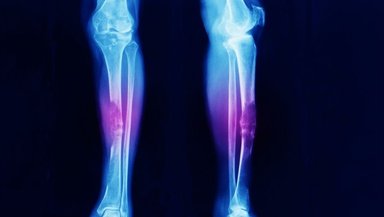Can HIPEC Be Done More Than Once? Understanding Re-treatment and Recurrence

Medicine Made Simple Summary
Many patients and families wonder whether HIPEC can be repeated if the cancer returns. This is a common question because peritoneal cancers sometimes come back months or years after the first treatment. This article explains, in simple and clear language, when repeat HIPEC is possible, who qualifies, how doctors decide, what risks increase with re-treatment and what outcomes studies have shown. You will also understand alternative options if repeat HIPEC is not suitable. By the end, you will know exactly how recurrence after HIPEC is managed and whether a second procedure may help.
Understanding Recurrence After HIPEC
HIPEC is a powerful treatment, but it does not guarantee that cancer will never return. Even when patients clearly understand what HIPEC is and how it works, recurrence can still occur. Some cancers behave aggressively. Others respond well for years and then reappear in small patches. Recurrence does not mean failure. It is part of the natural course of certain abdominal cancers. When recurrence happens, doctors re-evaluate the patient to see whether another surgery with HIPEC is safe, beneficial and likely to work. Suggested image: Diagram showing initial HIPEC treatment and later recurrence pattern.
Why Some Patients Consider Repeat HIPEC
There are several reasons why doctors may consider a second HIPEC. The cancer may return in a limited area. The new tumour may be small and surgically removable. The patient may still be healthy and strong. The disease may still be confined to the abdomen. In these situations, HIPEC repeated a second time may provide additional years of life, symptom relief and improved tumour control. However, this decision depends on strict criteria.
Is Repeat HIPEC Common?
Repeat HIPEC is not routine. Most patients undergo the procedure only once. But in selected patients, especially those with appendix cancer or peritoneal mesothelioma, repeat HIPEC is performed in experienced centres with careful planning and clearly defined HIPEC procedure steps. Some studies show that selected patients benefit significantly from re-treatment. Suggested image: Illustration comparing first HIPEC vs repeat HIPEC candidates.
Types of Cancers Where Repeat HIPEC Is More Likely
Repeat HIPEC is considered most often in cancers that remain inside the abdomen for long periods. Appendix cancers, especially pseudomyxoma peritonei, may recur slowly and locally. These patients are strong candidates for repeat procedures. Peritoneal mesothelioma can also be treated again if recurrence is limited. Colorectal cancer recurrence may sometimes qualify for repeat HIPEC, but only when disease spread is small and resectable. Ovarian and gastric cancer may be evaluated case-by-case.
How Doctors Decide Whether Repeat HIPEC Is an Option
Doctors look at several factors. They check how long it has been since the first HIPEC. Longer intervals, such as two or three years, usually mean better outcomes with repeat HIPEC. They assess how far the recurrence has spread. If the peritoneal cancer index (PCI) is low, repeat surgery may be possible. They consider whether the patient is strong enough for another major procedure. They also check whether the cancer type is likely to respond well a second time, following the same careful evaluation used before the first HIPEC.
The Importance of PCI Scoring in Repeat HIPEC
PCI scoring helps doctors measure recurrence. A low PCI score means the tumour deposits are small and limited. This gives surgeons a chance to remove them completely. A high PCI score means cancer is spread out, making a second HIPEC risky or ineffective. PCI is one of the strongest tools for deciding whether repeat HIPEC is worthwhile.
Time Interval Between First and Second HIPEC
Doctors prefer a long interval between the first and second procedure. Recurrence after one or two years often indicates a slower-growing cancer that may respond well again. Very early recurrence, such as within six months, suggests aggressive disease that may not benefit from repeat surgery. The timing of recurrence strongly affects outcomes and influences when HIPEC is recommended again.
How Repeat HIPEC Is Performed
The second HIPEC procedure is similar to the first. The surgeon removes visible tumour deposits and then delivers heated chemotherapy inside the abdomen. The complexity may be higher because scar tissue forms after the first surgery. This scar tissue may make dissection difficult. This is why experienced HIPEC surgeons are essential for repeat procedures. Suggested image: Graphic showing surgical steps with emphasis on scar tissue.
Expected Benefits of Repeat HIPEC
In selected patients, repeat HIPEC offers meaningful benefits. It can reduce tumour burden, relieve symptoms such as abdominal discomfort and extend survival. Appendix cancer patients often see the most benefit. Some studies show that patients with limited disease and long intervals between treatments live several years longer after repeat HIPEC. Repeat surgery can also improve quality of life when tumours cause bloating or pressure.
Risks Involved in Repeat HIPEC
Repeat HIPEC carries more risks than the first procedure because scar tissue increases the difficulty of surgery. There may be a higher chance of bleeding or organ injury. The surgery may take longer. Recovery may be slower. Risk of infections or bowel complications may be slightly higher. However, in experienced centres, repeat HIPEC is performed safely with careful planning.
What Studies Say About Repeat HIPEC
Studies show that selected patients benefit significantly. Appendix cancer patients with long gaps between recurrences have strong long-term outcomes. Peritoneal mesothelioma patients also show survival benefit. Colorectal cancer patients may benefit when recurrence is very limited. Studies also stress that surgeon experience, PCI score and interval since first HIPEC influence results the most. Suggested image: Simple survival graph comparing first vs repeat HIPEC outcomes.
Patient Stories: What People Share About Second HIPEC
Patients who undergo repeat HIPEC often describe the second recovery as slower but manageable. Many say they felt more mentally prepared the second time. Others share that the first procedure gave them several good years, and the repeat procedure gave them additional time and hope. These experiences show that repeat HIPEC can be meaningful, even if challenging.
Who Should Not Have Repeat HIPEC
A second HIPEC is not suitable if the cancer has spread outside the abdomen. It is also not recommended if the PCI score is high or if major organs are affected. Patients with very poor nutritional status or heart or kidney problems may not tolerate repeat surgery. If cancer is aggressive and returns quickly, repeat HIPEC may not help.
Alternatives When Repeat HIPEC Is Not Possible
If repeat HIPEC is not suitable, doctors may recommend systemic chemotherapy, targeted therapy, immunotherapy or supportive treatments. In some cases, palliative surgery helps relieve symptoms. The goal is always to improve comfort, extend life when possible and maintain quality of life.
Importance of Specialist Centres for Repeat HIPEC
Repeat HIPEC should be done only in high-volume centres with experienced cytoreductive surgeons. These teams understand the added complexity of scar tissue, recovery challenges and tumour biology. Choosing the right centre improves safety and outcomes.
Conclusion
If your cancer has returned after HIPEC, speak with a specialist trained in cytoreductive surgery and HIPEC. Do not assume recurrence means the end of options. Many patients benefit from repeat evaluation, and some qualify for a second HIPEC with meaningful results. Schedule a consultation to understand your PCI score, cancer behaviour and treatment choices clearly. Early evaluation improves your treatment options.


























